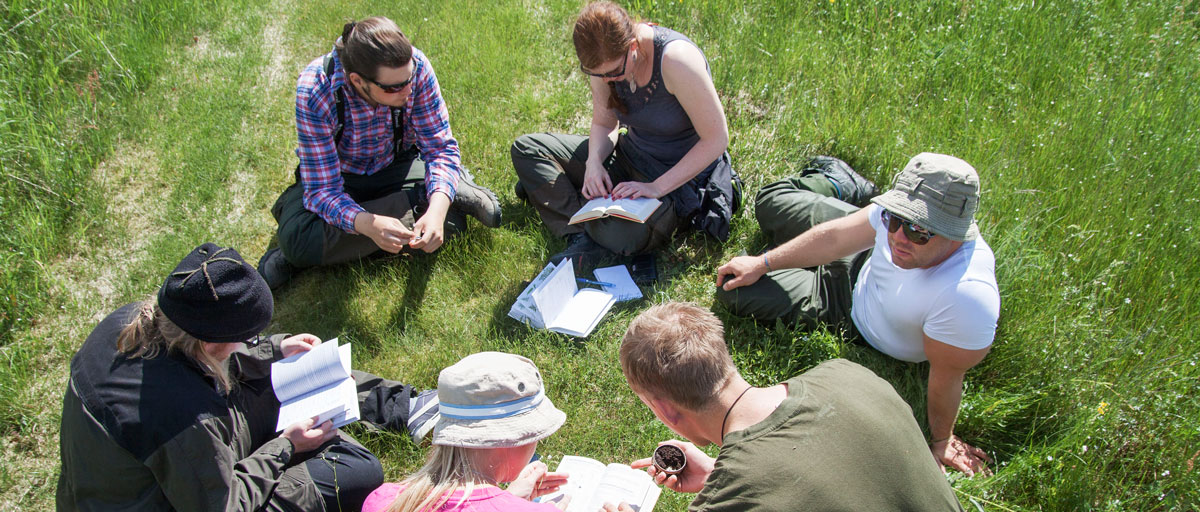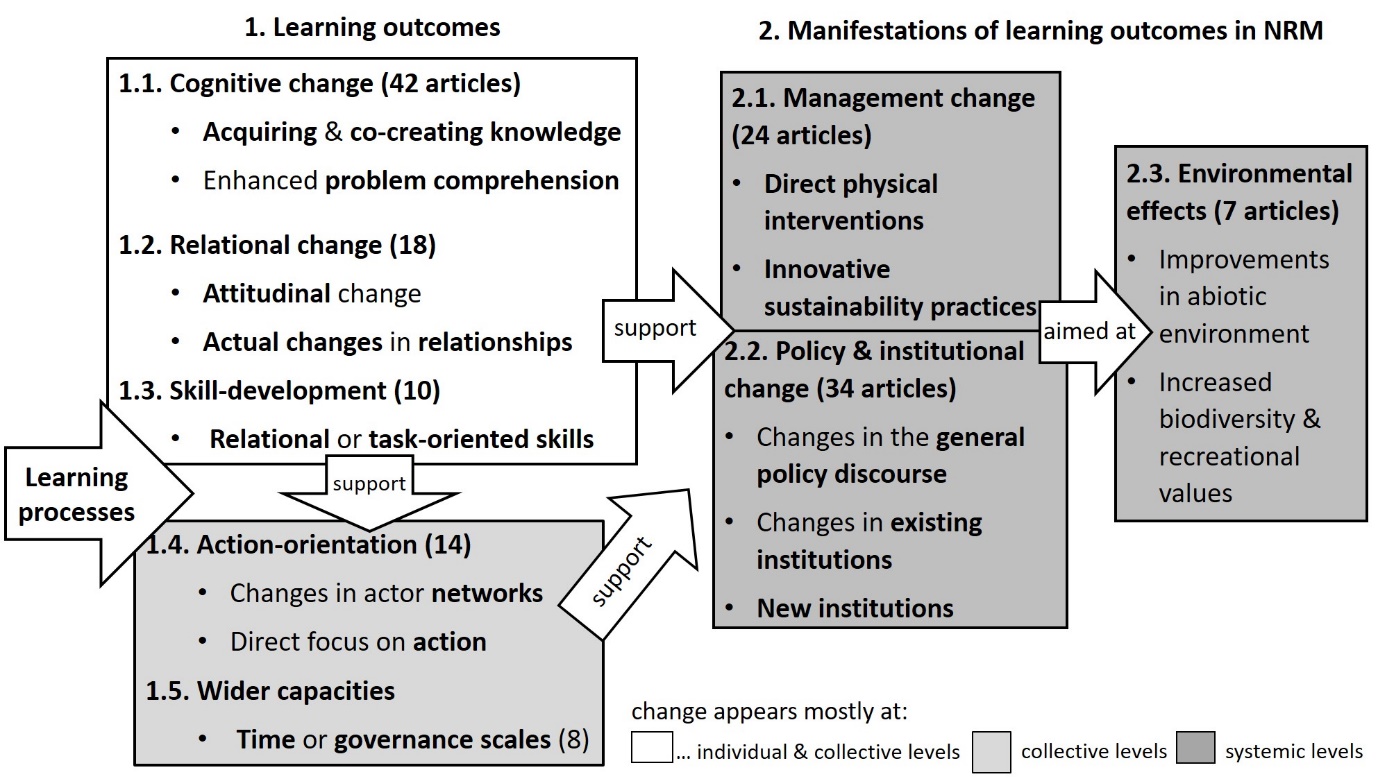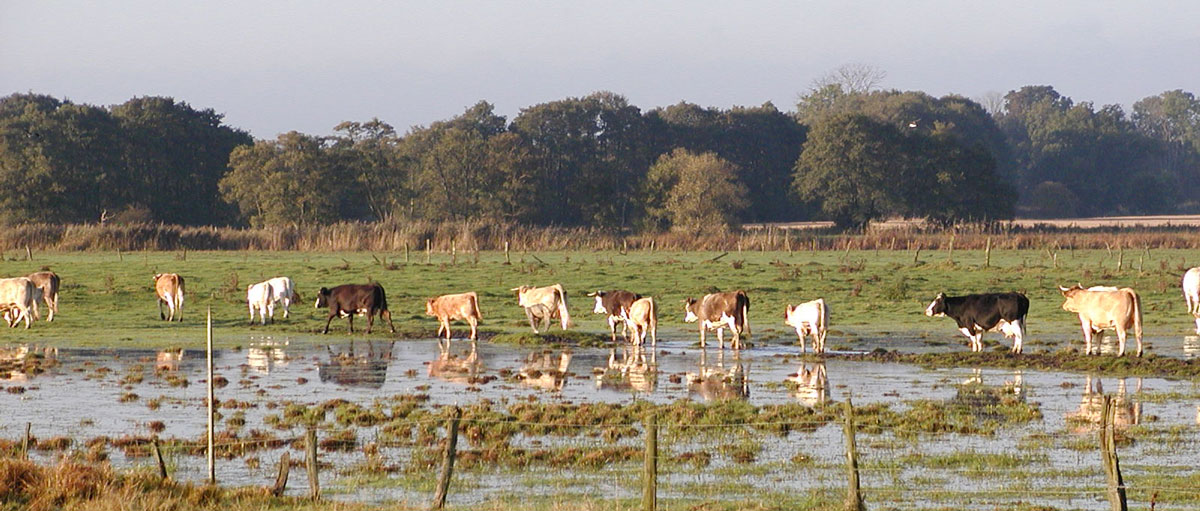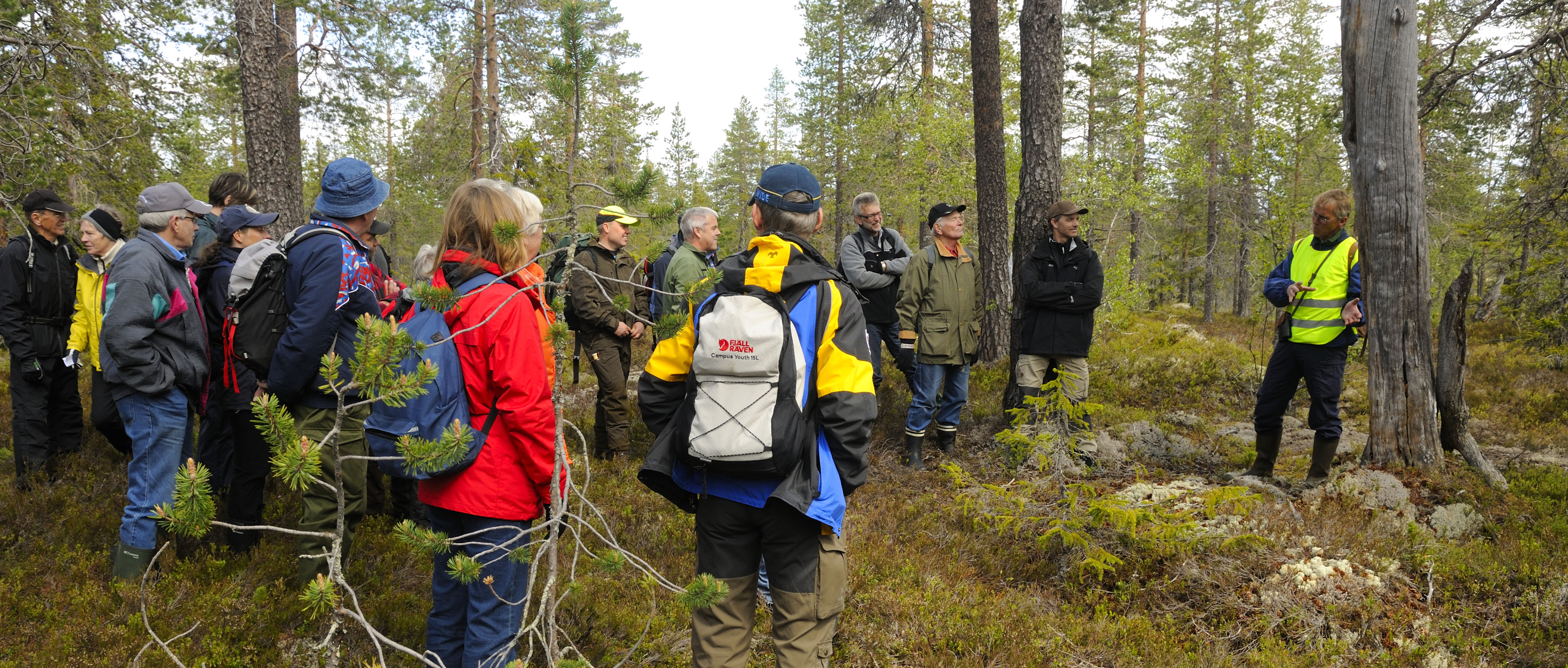
Current literature on learning outcomes in natural resource management argues that learning should lead to actions that promote sustainability but cannot confidently demonstrate how to link them. Photo: A. Tedeholm/Azote
Bildtext får vara max två rader text. Hela texten ska högerjusteras om den bara ska innehålla fotobyline! Photo: B. Christensen/Azote
learning and sustainability
Learning, set, action!
Why the need to understand the links between learning and action is critical to the sustainable management of natural resources
• Learning is a complex and multifaceted process, which can lead to dramatic change in individuals and society
• Learning outcomes at personal (skills), community scale (networks) and different governance levels tend to support action within natural resource managment
• But our understanding of the practice-related impacts of learning on natural resource management still needs refining
Learning can change everything, just imagine the opposite. The world would look quite different if humans had never learned to control fire. Humans are good at learning. We are curious, creative, flexible, and intuitive. We grow from infants who must learn to walk into adults that can fly aircraft around the world. We seek to understand atoms and galaxies. As a species, we have changed ourselves and the planet. Yet change often results in unforeseen consequences.
The environmental changes that humans have created pose a risk to human society and its persistence. To adapt to the challenges we are facing, we will have to learn how to be a more sustainable society.
The incorporation of new knowledge and practices is a premium requirement for charting a course to a sustainable future.
This is where the review article by centre post-doctoral researcher Monika Suškevičs published in the Journal of Environmental Planning and Management comes in.
The paper provides the first literature review and synthesis aimed at addressing the challenges of applying learning outcomes to the critical task of natural resource management.
Even so, the review shows that we are still struggling to link learning with sustainable outcomes.
The current literature on learning in natural resource management holds the view that the outcome of learning should be sustainable action, yet the exact links between learning and action are often difficult to identify
Monika Suškevičs, lead author
Understanding causal links has long fascinated social-ecological researchers, but at the same time has remained a daunting task, foremost because of time lags or complex relationships between interventions and their policy implications.
Multiple choice answers
In their literature review, Suškevičs and her colleagues mapped different concepts of learning. These notions vary in how they portray learning processes and conditions. But they all have at least one common feature – an explicit focus on action, be it changes in individuals’ mind-sets, collective practices (‘social learning’ and ‘transformative learning’) or innovations in policy communities (‘policy learning’).
The review also points at the fact that linking learning outcomes specifically with natural resources management (NRM) has sharply gained scholarly attention within the past decade .

Distribution of included articles by a) publication year and b) learning concepts (*combined: social + policy learning; collaborative + social learning; social + societal learning). All searches were completed in November 2015. Click on illustration to access the journal review.
From knowledge to action
The authors identified five learning outcomes and three manifestations of learning outcomes in NRM. Co-created knowledge, improved skills and balanced power relations seem to support further action.
In terms of learning outcomes, the majority of the reviewed articles reported the co-creation of knowledge and enhanced problem comprehension by both individuals and collectives. Of all the learning outcomes, cognitive changes are viewed as foundational for the manifestations of learning outcomes in NRM.
Changes in the relationships of learners were considered frequently but noted that there are challenges relating to power dynamics among actors. This is novel – studies on learning have only recently began to acknowledge how power relations matter for learning processes and outcomes. Yet, as experiences with participatory democracy have shown, power imbalances between actors often result in problems for NRM decision-making.
Skills development, for example, to manage uncertainty, is an infrequently reported learning outcome but is an important component of change in NRM. All the studies that reported skills development as a learning outcome also identified changes to a combination of management practices, policies or institutions and the environment.
What about ultimate environmental outcomes?
Social or policy learning which enhance capacities beyond a single issue plays an important role in the general resilience of the outcomes. Says Suškevičs, "In our review we found support for the idea that functioning actor networks play a pivotal role in the development of a ‘culture of learning’".
Almost two-thirds of the articles discussed changes to policies, or the creation of new institutions (collective rules). Measuring links between learning outcomes and their results is often simpler and unambiguous. It is often in the context of policy discussions or institutions that novel solutions to environmental challenges arise.
Surprisingly, despite the view that the environment should benefit from learning, very few studies actually report on these effects. In one case study, the environmental effects of learning and the related change in farming practices in Costa Rica could be seen in the reduction of agrochemical use and erosion.
Reporting on environmental effects from learning can be limited by the time available to the researchers as well as the scale of the intervention and pace of change.

Key themes considered in the literature regarding the learning process and its manifestations in the context of natural resource management. Click on illustration to access full journal review.
A grainy picture
The work of Suškevičs and colleagues offers an “enhanced problem comprehension” and calls for further investigation into the links between learning and action. Several questions remain open, as there is a difference in how learning concepts depict links between learning and action. For example, studies using concepts of ‘policy learning’ often associate learning very explicitly to changes in collective behaviours.
It still remains a task for future research to systematically compare different action-oriented learning concepts and the ways they approach NRM outcomes. An important consideration here is the fact that learning still occurs when things do not go as expected.
As Thomas A. Edison famously said, “Just because something doesn’t do what you planned it to do doesn’t mean it’s useless.” In the study of learning and the practice of NRM, knowing what doesn’t work is an essential step on the road to what does.
Methodology
Literature records describing learning and outcomes in the field of natural resource management (NRM) were obtained using a systematic search of the Web of Science portal. The keywords focused on capturing all relevant literature on action-oriented learning. The searches were done in November 2015. From the 1223 records obtained in the initial search, 1170 were removed from consideration using pre-defined search criteria, leaving 53 records for final analysis. The 53 studies were typically qualitative in nature. To provide a synthesis of the information contained in the studies, the authors used three methods.
First, the authors used framework synthesis to code each study against eight pre-determined learning outcome categories, which ranged from individuals to collectives, as well as attitudes to actions. Framework synthesis provides an assessment of the topics covered by each study and allows reviewers a chance to adapt their framework as necessary. Second, the authors applied thematic synthesis to each of the eight categories. Thematic synthesis aims to develop themes of similarities and differences between studies. Third, the authors used textual narrative synthesis to understand and summarise the description of learning outcomes and manifestations across different case studies.
Suškevičs, M., Hahn, T., Rodela, R., Macura B., and Pahl-Wostl, C. 2017. Learning for social-ecological change: a qualitative review of outcomes across empirical literature in natural resource management. Journal of Environmental Planning and Management. DOI: 10.1080/09640568.2017.1339594








